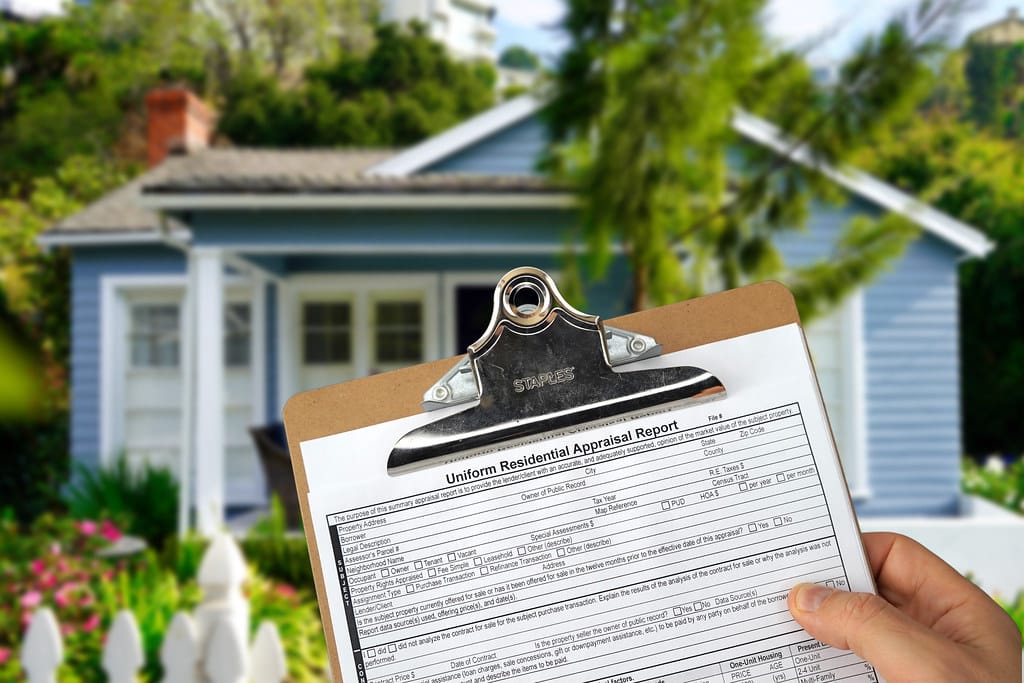A common concern is, “can the government take my land without paying full value for my property?” We will delve into this issue and provide insights on the legal aspects surrounding it.
Let's Go Beyond, to Bring You Back
Let's get you the compensation you're entitled to. Get a FREE Consultation today.
Let's Go Beyond, to Bring You Back
You deserve the compensation you’re entitled to, call for your FREE Case Review today.
Understanding Eminent Domain and Its Limitations
Eminent domain is the power held by federal, state, and local governments to take an individual’s private land for a public purpose, even if the landowner is unwilling to part with it. The government must adhere to certain legal limitations, such as the public use requirement and the just compensation principle. Courts also have the authority to review the acquisition of land by a government agency, but they cannot interfere with the decisions of the legislature unless they are arbitrary and unreasonable.
Government officials overseeing eminent domain projects are subject to budgetary constraints imposed by the public, leading to significant pressure to negotiate property owners down to the lowest possible price. The Kelo decision, a landmark Supreme Court case, expanded the government’s takings power by allowing property to be taken for economic development, creating considerable dissent and prompting numerous states to enact laws that limit governments’ takings abilities and protect private property rights.
Public Use Requirement
The public use requirement is a key limitation on the government’s eminent domain power. It refers to projects that are beneficial to the public interest, or which address “blight” and encourage commercial development. The Kelo decision allowed the government to take private property for a private development, as the Court judged that the community would benefit from the progression of economic development. This ruling significantly augmented the government’s takings power, which has led to several high-profile cases challenging public use requirements.
One such case was Puntenney v. Iowa Utilities Board, which concerned the construction of the Dakota Access Pipeline over easements and whether it adhered to the constitutional definition of “public use” under both the Fifth Amendment of the U.S. Constitution and the Iowa Constitution. The Iowa Supreme Court affirmed the construction of the pipeline, as it satisfied the criteria of public use under both constitutions. These cases highlight the ongoing debate over the public use requirement and the balance between private property rights and the government’s power to seize land for public projects.
Just Compensation Principle
The just compensation principle is another critical limitation on the government’s power of eminent domain. It ensures that property owners receive fair market value for their land when it is taken for public use. Owners sentimental or other value attached to items is not taken into account when calculating compensation. Strictly monetary considerations are the only yardstick used in such cases. The government must provide equitable recompense to the property owner when taking private property for public use in order to adhere to the law.
Nonetheless, certain exceptions to the general principle of remuneration exist in eminent domain cases. For example, the Supreme Court ruled that when the government carries out a taking and enforces a lasting physical occupation of the property, it must supply the property owner with just compensation, even if the area is diminutive and the government’s use does not drastically affect the owner’s economic interest. In such cases, the determination of just compensation can become a complex and contentious issue.
Texas Eminent Domain Lawyer
Get Compensated For Your Injuries & Damages! Call Us For A FREE Case Review And Know What Your Case Is Worth.
The Fair Market Value Dilemma
Assessing the fair market value of a property in an eminent domain case may pose certain difficulties. Factors such as relocation expenses, lost business, damage to the remainder, zoning, and more are taken into consideration when determining fair market value. The customary method for ascertaining fair market value entails ascertaining the value of the property based on considerations such as recent sales of analogous properties in the same area, with real estate appraisers often being engaged in this method.
However, various appraisal methods and potential discrepancies in valuation can complicate the process. The market approach, income approach, and cost approach are all utilized to determine fair market value in eminent domain cases. Market volatility can further complicate the accurate assessment of the fair market value of a property, as fluctuations in market conditions can impact property values and render it difficult to determine the fair market value at a precise point in time.
Appraisal Methods
The issuance of an appraisal notice marks the first step in land acquisition for a project. It is closely related to the process of eminent domain. It provides the landowner with an initial understanding of the magnitude of the acquisition on their property. The Market Approach, Cost Approach, and Income Approach are the appraisal methods typically employed in eminent domain proceedings.
These appraisal methods involve evaluating factors like size, location, condition, zoning restrictions, and comparable properties. The location of a property can significantly influence its valuation in the context of eminent domain, with factors such as proximity to amenities, transportation, and desirable neighborhoods raising the value of a property, while properties in less desirable areas or with potential issues may have a diminished valuation.
Once the appraisal is complete, the appraiser produces a comprehensive report estimating the property’s market value.
Discrepancies in Valuation
Discrepancies in property valuation during eminent domain proceedings can result in various complications, such as disagreement between property owners and the government, inadvertent mistakes, deception, misinterpretation of laws, and disparities in property values. Government pressure can also affect property valuation in eminent domain cases through the selection of appraisers who may undervalue the property and through the government’s plans for the acquisition and intended use of the property.
Property owners can address discrepancies in property valuation by engaging in the following steps:
- Negotiation: Property owners can negotiate with the valuer or the acquiring authority to resolve any discrepancies in the valuation.
- Further appraisal: Property owners can hire an independent appraiser to conduct a separate appraisal and provide a more accurate valuation of the property.
- Legal proceedings: If negotiation and further appraisal do not resolve the discrepancies, property owners can take legal action to challenge the valuation and seek fair compensation.
Independent appraisers play a crucial role in resolving valuation discrepancies in eminent domain proceedings. They provide impartial and precise valuations, especially when there are discrepancies in valuation opinions. Their expertise assists in guaranteeing that property owners are provided with fair compensation for their land.
Discrepancies in property valuation can also detrimentally affect the just compensation principle in eminent domain, leading to disputes and legal challenges.
Protecting Your Property Rights During Eminent Domain Proceedings
Property owners can safeguard their rights during eminent domain proceedings through understanding the law, securing representation from an experienced eminent domain lawyer, and entering into negotiations with government agencies. Comprehending the law is essential in safeguarding one’s rights in an eminent domain issue. Though property owners are allowed to act as their own representative in legal matters concerning eminent domain, it is not recommended due to the risk of losing out on potential compensation and the disadvantage of facing experienced legal counsel from the government.
Securing legal representation ensures that one’s rights are safeguarded and an equitable remuneration is received for one’s property. While it is possible to proceed through the eminent domain process without attorney guidance, this may not be the most strategic approach for ensuring a fair outcome.
Hiring an Experienced Eminent Domain Lawyer
An experienced eminent domain lawyer can:
- Guide property owners through the complex legal process, thereby increasing the likelihood of fair resolution
- Even the playing field and significantly improve the prospects of a fair result for your case
- Bring a wealth of experience to your case
- Be knowledgeable in laws and regulations, have worked on similar cases, and are very familiar with the legal process
- Assist in negotiating with the government
- Represent you in the event of a condemnation hearing
Engaging an experienced eminent domain lawyer can greatly benefit your case.
When engaging an eminent domain lawyer, it is imperative to assess qualifications and experience. A competent lawyer should possess knowledge and proficiency in eminent domain law, as well as a record of successfully representing clients in contesting the government’s taking of their property.
Negotiating with Government Agencies
Property owners may achieve better compensation during eminent domain proceedings by negotiating with government agencies. The notice of the appraisal provides a landowner with an initial understanding of the magnitude of the acquisition on their property, allowing them to engage in negotiations with the government for a more favorable price. Negotiations can sometimes prove unsuccessful. In such cases, the government may turn to eminent domain action and take the property. The court will decide how much payment the property-owner is due for the land..
During the negotiation process in eminent domain cases, property owners maintain the right to negotiate with the condemning authority to reach an accord on the compensation for their property. The role of an attorney during negotiations with government agencies in eminent domain cases is to:
- Provide guidance and representation to the landowner
- Assist in negotiating a reasonable compensation for the property being taken
- Guarantee that the government adheres to the appropriate eminent domain process.
Legal Recourse for Property Owners
In eminent domain cases, property owners’ legal recourse includes contesting the public use requirement and disputing the compensation offer. The legal grounds for challenging the public use requirement in eminent domain cases may include arguing that the government’s intended use of the property does not meet the definition of ‘public use,’ asserting that the government’s taking of the property is not necessary or reasonable for the stated public use, claiming that the government’s taking of the property is not for a legitimate public purpose, and challenging the government’s failure to provide just compensation for the property taken.
A property owner may contest both the proposed taking and the amount of compensation offered in an eminent domain case. If unsuccessful in administrative appeals, the property owner may choose to appeal the award or outcome to an appeals board or a higher court. The court’s responsibility in assessing the adequacy of an eminent domain compensation offer is to review the offer and guarantee that it meets the requirement of ‘just compensation,’ taking into consideration elements such as the fair market value of the property and any other pertinent factors to determine if the offer is fair and reasonable.
Challenging the Public Use Requirement
To challenge the public use requirement in eminent domain cases, property owners may present evidence that the government’s taking of the property does not meet the definition of ‘public use,’ that the taking is not necessary, or that the taking is not for an authentic public use. Community coalitions can also play a role in contesting the public use requirement by advocating for the rights of property owners and mobilizing public support against the government’s taking of private property.
In some cases, property owners have successfully contested the public use requirement, such as in the Kelo v. New London case, where the U.S. Supreme Court determined that economic benefits are a permissible form of public use that allows the government to seize property from private citizens. These cases demonstrate the importance of understanding the legal grounds for challenging the public use requirement and the potential outcomes for property owners.
Appealing the Compensation Offer
Appealing the compensation offer in an eminent domain case can lead to a higher settlement, but it may require additional legal proceedings and expert testimony. The procedure for appealing a compensation offer generally entails contesting the offer, advancing administrative appeals, initiating a lawsuit, submitting arguments in court, and possibly appealing the final order of just compensation. The court ascertains a just compensation offer during eminent domain appeals by taking into account factors such as the fair market value of the property, any diminution caused by the government’s actions, and the highest and best use of the property, with appraisers often being engaged in this process.
Expert testimonies play a critical role in appeals of eminent domain cases, as they offer specialized knowledge and opinions on various aspects of the case. These testimonies can be used to assess and identify damages, estimate the value of the property, and address key factors that contribute to its value. Expert witnesses can provide evidence and analysis that support the landowner’s position and challenge the compensation offer made by the government, bolstering the landowner’s case and increasing the likelihood of a desirable outcome in the appeal process.
Texas Eminent Domain Lawyer
Get Compensated For Your Injuries & Damages! Call Us For A FREE Case Review And Know What Your Case Is Worth.
Real-Life Examples of Eminent Domain Cases
Studying real-life instances of eminent domain cases can offer significant understanding into the process and potential outcomes for property owners. The Kelo vs. City of New London case is a landmark Supreme Court case that expanded the government’s takings power by allowing property to be taken for economic development, creating considerable dissent and prompting numerous states to enact laws that limit governments’ takings abilities and protect private property rights.
Another example is the Poletown Neighborhood Council v. City of Detroit case, where eminent domain was employed to procure land for the construction of a privately developed convention center. The Michigan Supreme Court affirmed the utilization of eminent domain in this case, permitting the development to continue.
These cases illustrate the complexities and challenges that property owners face in eminent domain proceedings, as well as the potential for successful outcomes when property owners take legal action to protect their rights. By understanding the legal principles and processes involved in eminent domain cases, property owners can better navigate the system and fight for fair compensation.
State and Local Government Variations
The practice of eminent domain and its laws can significantly differ across state and local governments, influencing property owners’ rights and compensation. While the federal government holds the power of eminent domain, state and local governments also possess the ability to exercise eminent domain within their jurisdiction, as long as they do not supersede federal laws on eminent domain.
Many states have enacted regulations that limit governmental authority in takings abilities, such as when the government takes private property:
- Establishing a more stringent definition of what constitutes a “public use”
- Necessitating greater levels of examination to validate an action classified as a taking
- Requiring fair compensation for property owners
- Providing opportunities for property owners to challenge the taking in court
These regulations aim to protect property owners and ensure that eminent domain is used responsibly and in the best interest of the public.
Local government involvement can have a considerable effect on eminent domain negotiations and compensation, as they play a significant role in ascertaining the public use justification for taking private property and the amount of compensation to be paid to property owners. Local governments may have specific regulations or guidelines that dictate the process and criteria for eminent domain cases within their jurisdiction, and their involvement can influence the negotiation process and the final compensation offered to property owners.
State Eminent Domain Laws
Eminent domain laws at the state level may show variations in public use requirements, guidelines for compensation, and legal procedures. The variations in public use requirements across different US states for eminent domain include restrictions on its utilization to increase property tax revenues, undermining of the constitutional public use requirement, and the government’s incapacity to employ eminent domain power unless its employment is for public use. Each state has its own particular laws and processes for exercising eminent domain, with distinctions in the criteria for taking property, the compensation provided to property owners, and the procedural necessities for initiating and conducting eminent domain proceedings.
Some states, such as Illinois, Florida, and Texas, provide more stringent protections for property owners in eminent domain proceedings. In other states, such as California, eminent domain laws grant the government more authority to acquire homes and businesses compared to other states. It is crucial for property owners to understand the specific eminent domain laws of their state in order to effectively protect their rights and ensure fair compensation.
Local Government Involvement
In eminent domain cases, local government involvement can impact the negotiation process and the calculation of fair market value. Local governments are integral in ascertaining the public use justification for taking private property and the amount of compensation to be paid to property owners. They may have precise regulations or guidelines that dictate the process and criteria for eminent domain cases within their jurisdiction. Moreover, local government officials, who are answerable to their constituents, may be more aware of the local community’s concerns and interests, which can impact the negotiation process and the final compensation offered to property owners.
Local governments also interact with state and federal entities during eminent domain cases by adhering to the laws and regulations established by the respective levels of government. They may:
- Request approval or authorization from higher levels of government prior to initiating an eminent domain action
- Work in conjunction with state and federal entities to guarantee compliance with legal stipulations
- Resolve any potential conflicts or challenges that may occur during the process
Texas Eminent Domain Lawyer
Get Compensated For Your Injuries & Damages! Call Us For A FREE Case Review And Know What Your Case Is Worth.
Frequently Asked Questions
What is eminent domain?
Eminent domain is the power of governments to acquire private property for public use, even if the landowner does not consent.
What are the key limitations on the government's eminent domain power?
The government’s eminent domain power is limited by the necessity of public use and the obligation to provide just compensation for taking private property.
How is fair market value determined in eminent domain cases?
Fair market value in eminent domain cases is determined by using appraisal methods such as the market approach, income approach, and cost approach.
How can property owners protect their rights during eminent domain proceedings?
Property owners can protect their rights during eminent domain proceedings by hiring an experienced lawyer, negotiating with the relevant government agencies, and taking legal action when necessary.
Do state and local government laws and involvement impact eminent domain cases?
Yes, state and local government laws and involvement have a significant impact on eminent domain cases, from determining fair market value to the negotiation process.




